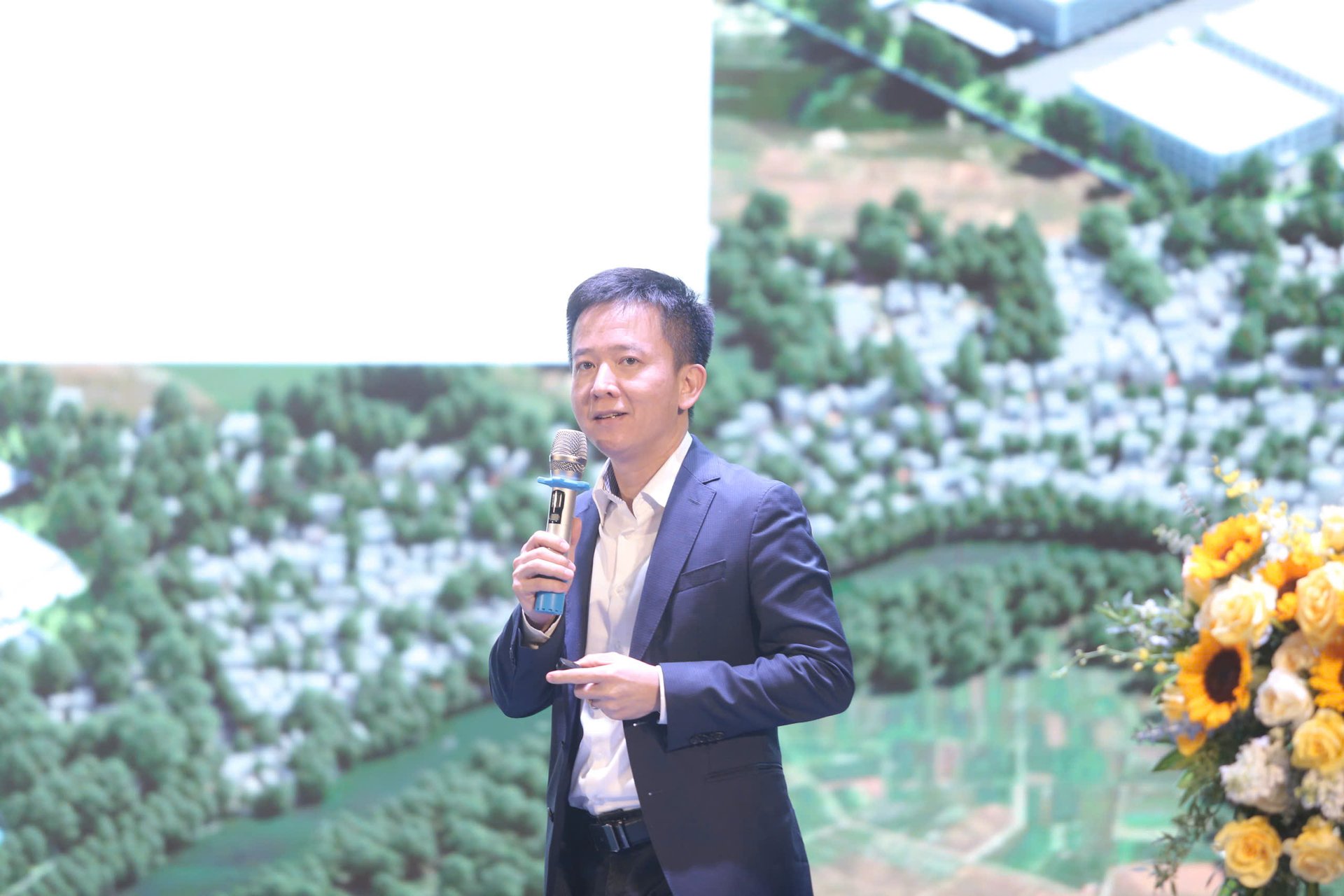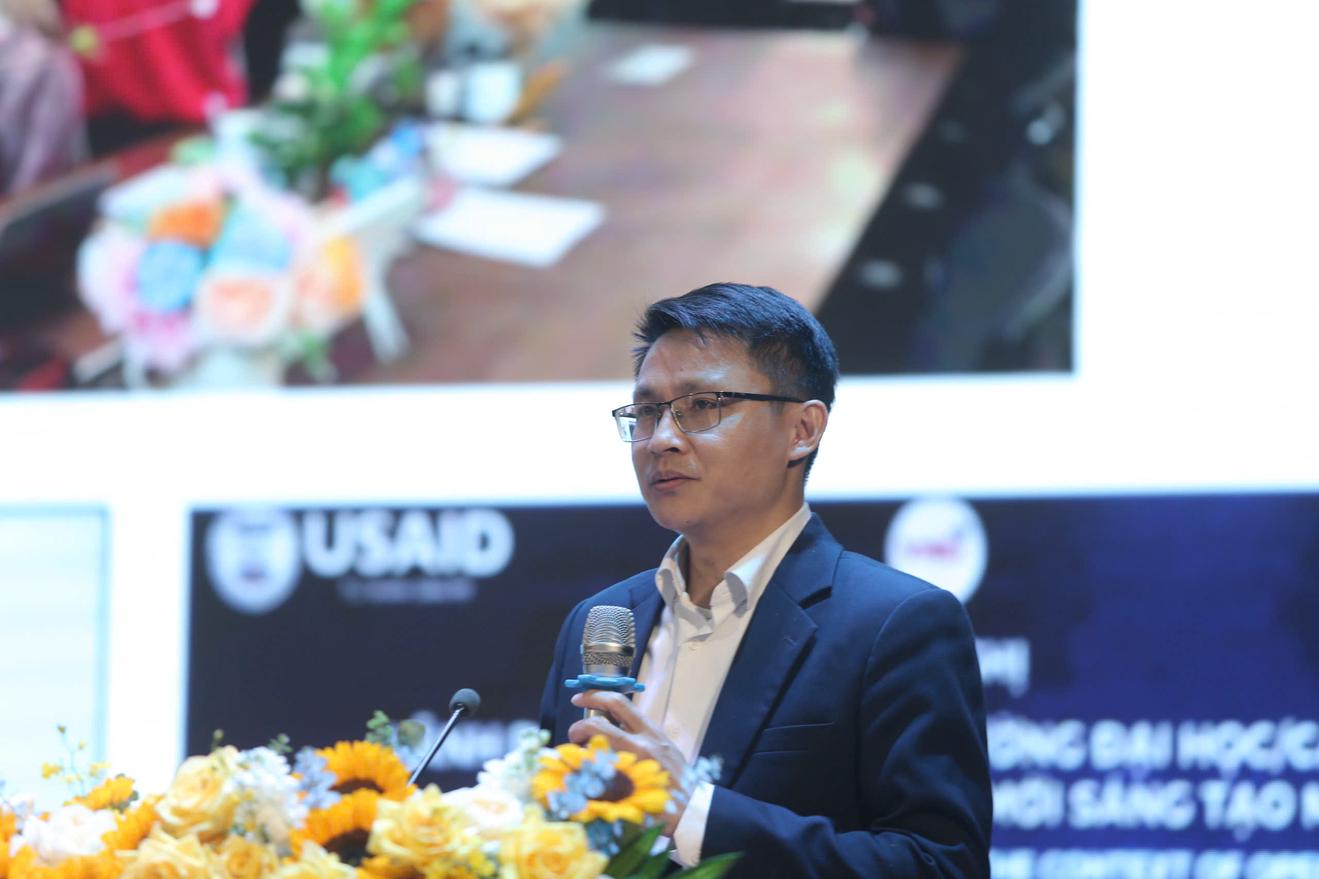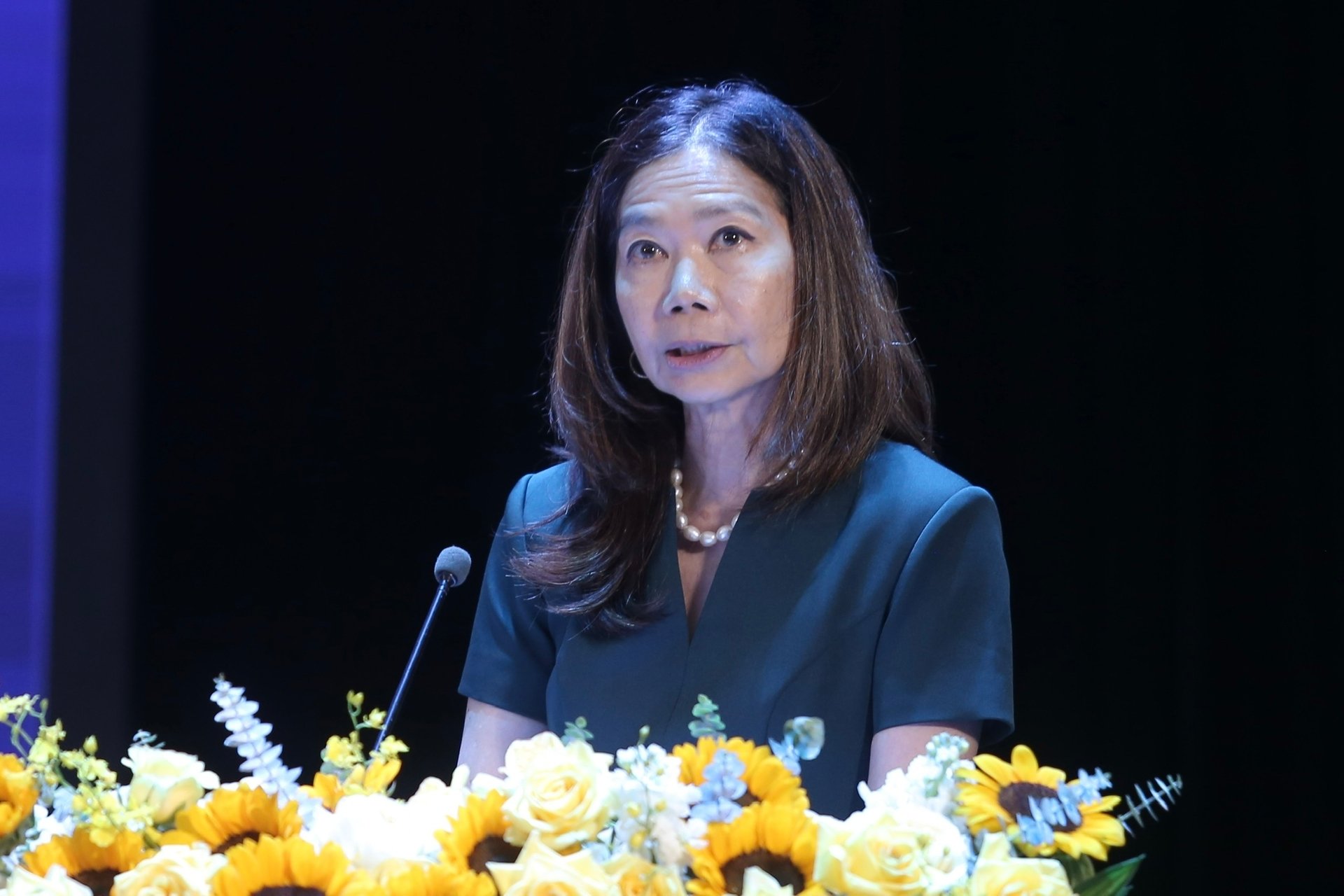May 30, 2025 | 08:53 GMT +7
May 30, 2025 | 08:53 GMT +7
Hotline: 0913.378.918
May 30, 2025 | 08:53 GMT +7
Hotline: 0913.378.918
Echoing the World Creativity and Innovation Day 2025, it is expected that enterprises will implement a series of initiatives to enhance innovation, with the objective of fostering a "innovation culture."
Nguyen Trung Kien, CEO of CNC Tech Group Joint Stock Company, stated at the event that any enterprise that fails to innovate will inevitably be eliminated from the game; consumer pressure is the most significant factor motivating businesses to be creative.
According to Mr. Kien, consumers today not only want high-quality products but also sustainable development, uniqueness, and variety. If a business is unable to satisfy these requirements, it will experience a decline in its marketing share. This necessitates organizations to consistently enhance their business models, production processes, products, and services.

CNC Tech Group Joint Stock Company General Director Nguyen Trung Kien believes that any enterprise that does not innovate will eliminate itself from the game. Photo: Minh Khang.
Kien candidly acknowledged that numerous organizations continue to contend with outdated technology, insufficient labor productivity, and an overreliance on manual labor, underscoring that innovation is not solely a competitive advantage but also a solution to the internal "ills" of Vietnam's manufacturing sector. As a result, innovation will facilitate the modernization of production, improve efficiency, and free the workforce.
Additionally, Kien argues that innovation is crucial in mitigating adverse consequences, optimizing resource utilization, and transitioning to a green economy, as manufacturing not only generates material prosperity but also has a substantial environmental impact.
CNC Tech is focusing on three primary pillars in order to achieve these objectives: fostering technological innovation and integrating cutting-edge scientific and technological advancements into production; implementing intelligent management models to enhance product quality and optimize operations; and establishing a vast network of partnerships with reputable research institutions, universities, and leading technology corporations to develop new breakthroughs jointly.
Dr. Vo Xuan Hoai, Deputy Director of the National Innovation Centre (NIC), emphasized that innovation is responsible for generating transformative changes across all sectors, contributing up to 95% to a country's economic competitiveness and 91% to the green economy.

Dr. Vo Xuan Hoai, Deputy Director of the National Innovation Center (NIC), pointed out that innovation contributes up to 95% to the competitiveness of the economy and 91% to the green economy. Photo: Minh Khang.
Dr. Hoai posits that the experience of Asian "tigers" like Taiwan (China) and South Korea demonstrates that investment in technology and innovation is a significant factor in driving economic development. Global innovation centres such as Silicon Valley, Zhongguancun, and Brainport Eindhoven serve as convincing evidence of the critical role that innovation plays in the development of technology ecosystems, the attraction of talent, and the generation of substantial economic value.
Currently, NIC is focusing on three primary initiatives: developing the innovation ecosystem, cultivating human capital, and providing support to businesses. Ecosystem development is regarded as fundamental among these. It encompasses the establishment of the Vietnam Innovation Network in 22 countries, the organization of networking events, the attraction of investment, and the incubation of technology businesses.
A critical success factor in innovation is the presence of talented human resources who work in a collaborative, connected, and knowledge-sharing environment. NIC places a particular emphasis on the development of a "culture of innovation," as remarked by Dr. Hoai. The Centre is committed to fostering an open environment that promotes the exchange of knowledge and encourages creativity, thereby generating innovative solutions.

Ms. Pauline Tamesis, United Nations Resident Coordinator in Vietnam, recommended that Vietnam needs to build a "culture of innovation". Photo: Minh Khang.
Ms. Pauline Tamesis, the UN Resident Coordinator in Vietnam, recommended that Vietnam establish a national culture in which innovation is a way of life for all individuals and organizations, echoing Dr. Hoai's perspective on the importance of nurturing an innovative culture. This entails establishing an environment that fosters the development of novel concepts, celebrates creativity, and integrates innovative thinking into daily activities to enhance communities and advance progress.
The Vietnam National Innovation Center (NIC) is a unit under the Ministry of Planning and Investment, established by the Prime Minister under Decision No. 1269/QĐ-TTg dated October 2, 2019. Its mandate is to support and develop Vietnam’s startup and innovation ecosystem, contributing to the transformation of the country’s growth model towards one based on science and technology.
The Center is designed based on the most advanced models and international best practices, tailored to Vietnam’s specific context. It operates under special, superior mechanisms and policies that enhance its competitiveness regionally and globally.
Translated by Linh Linh
/2025/05/25/4127-3-073637_820.jpg)
(VAN) Thanks to the promotion from an FAO-implemented project, vegetable production in greenhouses in Moc Chau has seen strong development, from 1.5 hectares in 2021 to nearly 50 hectares in 2024.

(VAN) FAO has recently supported USD 140,000 to implement the project 'Risk mitigation human-animal interface risks through disease control initiatives in pig farming.'

(VAN) The People's Committee of Tra Vinh province has approved an adjustment to the investment policy for the Green Hydrogen Plant project, increasing its area to approximately 52.76 hectares.
![Reducing emissions from rice fields: [2] Farmers’ commitment to the soil](https://t.ex-cdn.com/nongnghiepmoitruong.vn/608w/files/news/2025/05/05/dsc08881jpg-nongnghiep-140632.jpg)
(VAN) Clean rice cultivation model in Thuong Tan commune, Bac Tan Uyen district, is assisting local residents in achieving sustainable agriculture by substantially reducing costs, increasing productivity, and protecting the environment.

(VAN) At the conference to disseminate Resolution No. 68, AgriS introduced its digital agricultural ecosystem and reaffirmed its commitment to accompanying the Government in promoting private sector development and sustainable agriculture.

(VAN) 'Blue Ocean - Blue Foods' initiative is designed to restore marine ecosystems and establish sustainable livelihoods for local communities by cultivating a minimum of 1,000 hectares of cottonii seaweed in the first three years.
/2025/05/21/4642-3-112707_603.jpg)
(VAN) The V-SCOPE project has made direct contributions to three out of six pillars of the Comprehensive Strategic Partnership between Vietnam and Australia.